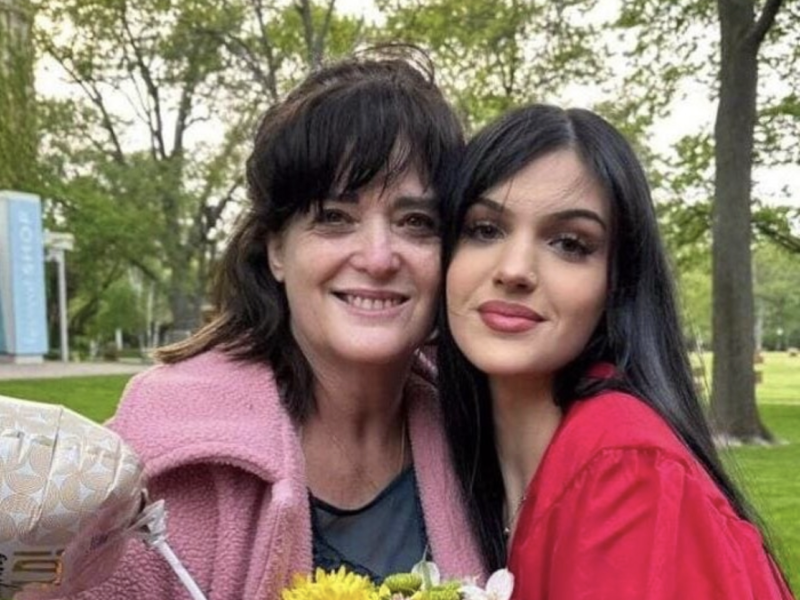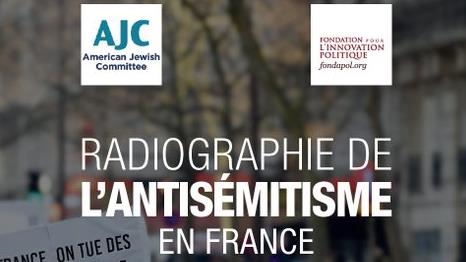Hillary Clinton and Kimberly Fuson are referring to an entire generation, but they may just as well have been speaking specifically about Alice Lok Cahana. Alice is a Holocaust survivor who went on to become a rabbi’s wife, mother of three children, a published author and a world-renowned artist. Her survival story was featured in Stephen Spielberg’s documentary “The Last Days,” which won the Oscar for documentary in 1999. Her painting “No Names” hangs in the Vatican, right outside the Sistine Chapel. “Artistry and wisdom” and “a lifetime of emotions” only begin to tell Alice’s story.
Alice Cahana believes love, art and beauty are within everybody who wants to embrace them, and she always nur- tured those qualities in herself. She even felt it in Auschwitz, where she and her sister would hide in the latrines, hold hands and quietly sing Shabbat songs
with the other children. After Liberation, the kindness she received from the people in the Swedish hospital changed her forever. “I couldn’t believe it,” she says now. “You don’t know us, but you ask, ‘What do you want to eat?’” She laughs. “I wanted cucumber!”
“Who are these people? We are no bodies, barely alive. They asked us, ‘What can we do for you?’ We were starving,” Alice says, “but starving for people loving us as well as for the food.” Alice decided then and there that she wanted to be like these people, wherever she ended up. At that point, she says, “I formed myself.” Later, Alice’s husband Moshe and her children continued to help her see beauty in the world and in others. After living through the Holocaust, she wondered how can you live? Moshe, who was a rabbi and a teach- er, helped the whole family understand that the answer was to love everybody. “The only way you can live,” she states, “the only way is if you give. There are no Jews and Christians. For all kinds of people, we open our heart and our soul.”
The art and writing came out of Alice’s desire to have a language with which to tell her story. She would compose the stories and poems in her head while she washed dishes and write them down later. She painted for years and then went to Rice University for formal training. She painted day and night. “If I want to have art, then I have to work.”
Her son, Rabbi Michael Cahana of Congregation Beth Israel in Portland, tells his mother that he remembers how focused she was. “Your mission was always to tell the story,” he says. “By speaking, painting and writing, you felt it was important that the story continues to be told.” Alice was a busy mother as well, more so because they were raising a child with Down Syndrome. When Rina was diagnosed in the 1960s, everybody advised Alice and Moshe to follow the conventional wisdom and put her in an institution. For the Cahanas, though, that was never ever an option. “It does something in your heart,” Alice says. “I told them ‘no.’”
When Alice’s painting was accepted into the permanent exhibit at The Vatican, she was invited to be there for the installation, but she refused to present the painting unless the whole family could attend, including Rina. The Pope, she says, understood the painting immediately and called his friends around. He asked about a particular section in yellow, and Alice explained that she was painting the smell of the crematoria. She also said that children like Rina were often the first ones taken away during the Holocaust.
“He was practically crying,” remembers Cantor Ida Rae Cahana, Alice’s daughter-in-law.
Alice and Rina moved to Rose Schnitzer Manor from Houston in 2012 to be near Rabbi and Cantor Cahana and their children. It was hard, she says, to leave the home where she and her husband had raised their children and the studio that had been such a large part of her life. But it turned out to be the right thing to do for both Alice and Rina. She is content. “I feel at home,” Alice says, “and Rina is a flower who has blossomed here.”
“I don’t permit myself to be the person who says ‘something terrible happened to me. I don’t permit myself. I love it here. The people are very nice and very beautiful. Every day I thank God that I am here.” Nobody should be surprised that Alice Cahana feels at home in a place where the core values are love, honor and respect.
“A Mother” By Alice Cahana
The colors of the early dawn changed softly. the sun seemed to be ashamed to announce a new day in auschwitz. We stood in line outside the barracks since early in the morning … the cold intensified our hunger and pain.
“I was married just two years ago.” the woman next to me whispered softly. “Last night i gave birth to our son – to my first child. There in the barracks of Auschwitz. My first child they took him away even before I could touch his soft skin and say to him, ‘Welcome to the world my beloved son … your Father would have been so proud of your round cheeks and long gentle fingers. Welcome to the world.”’ She muttered to herself, her tears falling on the unpaved ground mingling here with her slowly oozing blood.
We stood there to be counted like sheep by the white-gloved, well-groomed SS woman. her hair coiffured in the latest style. her perfumed scent intensified the feeling of our own neglected bodies.
“I so wanted to be a mother,” the woman continued through her tears … “Care, patience and love would have been our child’s diet. I would have nourished him with the tales of the past. he would have grown to be a good man.” She paused a bit and whispered even more softly.
“if I survive…I want to love the world around me. the spring. the forest and people. all people.” She whispered, almost like reciting a prayer and clearing her soul from hate and revenge.
Her face turned toward the sky. her alabaster skin looked translucent in the early morning light. the mystical rays of the dawn mingled with the smoke of the crematorium.
CEDAR SINAI PARK RESIDENTS SHINE IN CREATIVE WRITING PROGRAM • 2013 winners from Rose Schnitzer Manor
“Uncle izzy” by Sam Berry
“Friday, December 14, 2012” by Florence Blitch
“Waiting” by Diane Budner
“A Mother” by Alice Cahana
“Haunted” by Evelyn Hirsch
“Mother Tulip’s Chant” by Martha M. Pomerantz
“Sonnet” by Robert S. Putterman
Seven residents at Cedar Sinai Park’s Rose Schnitzer Manor were chosen from among 87 entries as winners in the 2013 Creative Writing Program sponsored by Leadingage Oregon. Leadingage Oregon is the state association of not-for-profit, mission-directed organizations dedicated to providing quality housing, health, community and related services to the elderly and disabled.





